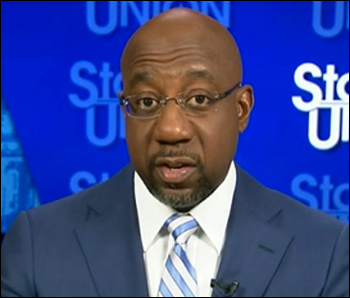By Jim Ellis
Dec. 7, 2021 — Something that has been rumored about and speculated upon for weeks has finally come to fruition. Defeated Sen. David Perdue has formally announced that he will challenge Gov. Brian Kemp in next year’s Republican primary.The serious primary challenge is part of the aftermath from the 2020 election controversy where Gov. Kemp’s perceived handling of the voter fraud complaints and challenges left a significant portion of the Republican base expressing discontent. Former President Donald Trump has many times attacked Kemp on the subject and is one of the key people behind Perdue’s fledgling gubernatorial candidacy. Trump is expected to play a large role in the primary.
Sen. Perdue lost his seat in the 2020 post-general runoff to Jon Ossoff (D) by a 50.6 – 49.4 percent count (54,944 votes of a total turnout of 4.48 million) after placing first in the general election by almost two full percentage points. Georgia has a majority victory rule, however, that requires all candidates to win their elections with more than 50 percent. In the November vote, Sen. Perdue fell just one-quarter percent short of securing outright victory.One of the reasons he lost is the state’s strongest Republican counties didn’t perform in the runoff as strongly as did the best Democratic counties. Many Republicans, it is believed, did not return for the runoff because they listened to some of the key Trump leaders, including the former president himself, argue that the Georgia election system is “rigged.”
Gov. Kemp was elected in 2018, winning the primary largely because he positioned himself far to the right, thus successfully appealing to the ardent Trump Republican voter. After moderating for the general election campaign, Kemp defeated former state House Minority Leader Stacey Abrams (D) by just 54,723 votes, an almost identical number to the difference between the Ossoff-Perdue election two years later. She, like Trump, challenged the election results.
The relationship between Gov. Kemp and Trump first became strained when the former disregarded the latter’s endorsed candidate for the US Senate appointment: then-Rep. Doug Collins who was in the running to replace resigned Sen. Johnny Isakson. The three-term senator, former House member and state legislative leader, was forced to leave office for health reasons, thus allowing the governor to appoint an interim successor.
Instead of Collins, Gov. Kemp chose billionaire businesswoman Kelly Loeffler, who would go onto lose her special election runoff campaign to current Sen. Raphael Warnock (D).








